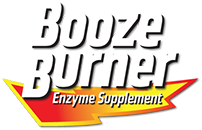Holiday party season is the time to eat, drink and be merry. Too much merriment can sometimes result in a not-so-celebratory hangover.
Dehydration is a main factor behind hangovers, as the body recovers from alcohol consumption.
Here are some myths vs. facts on hangovers, and what you can do to feel better.
1. Sleep & Eat Well
The U.S. National Library of Medicine recommends a conservative approach to the day after a hangover: sleep and eat as you are able, to give back to your body some of what it didn’t have while you were drinking — fuel to absorb alcohol and sleep to re-energize the body.
Meanwhile, remember what Murray says is the best hangover cure he’s ever heard: “Don’t drink.” …but where is the fun in that?
2. Fact: Stay Hydrated
Alcohol is a diuretic, which means it increases the amount of water excreted by the body. (Yes, you will have to pee more.) The dehydration it causes is often behind that morning-after feeling. As a result, the best defense against a hangover is to stay hydrated, says Dr. Gary J. Murray, acting director of the Division of Metabolism and Health Effects for the National Institute on Alcohol Abuse an Alcoholism.
Try alternating alcoholic drinks with non-alcoholic ones — ideally, water. This has the added benefit of spreading out the rate of alcohol absorption. Now for added benefit, have two Booze Burner capsules with the water too!!
If you haven’t had any water at night’s end, don’t worry: drinking water before going to sleep will still help the next morning, Murray says, although it may result in a late-night trip to the bathroom.
3. Myth: Pain medicine before or after bed
Taking pain medication after a night of drinking, before bed, is definitely not recommended. The medication can adversely interact with your body and the alcohol.
For example, taking an acetaminophen-based medicine (such as Tylenol) with alcohol can cause liver damage. Taking aspirin in conjunction with heavy daily alcohol use has bleeding risks.
Taking ibuprofen upon waking is appropriate, if there are no signs of nausea or upper abdominal pain.
4. Myth: Coffee (caffeine) cures all
A cup of black coffee isn’t likely to help you get over your hangover any quicker. Like an aspirin, caffeine may help relieve a side effect (in this case, the sleep deprivation that can come with a late night party) without battling the main problem.
Murray says caffeine wakes you up a little bit, and doesn’t help (or hurt) beyond that. Coffee is also a diuretic which causes more trips to the bathroom. You want to keep water in your body not out.
5. Myth: Waking up Drunk
It would take a truly heavy night of drinking to render you still drunk the next morning — but it can happen.
Avoid that nasty feeling by starting your evening with Booze Burner and having a glass of water every third or forth drink with Booze Burner (to a maximum of 6 capsules per day). Take Booze Burner with you when you go out as it is small and wallet sized so when you go to reach to pay for the next one, check that you have a packet with you and take it with a glass of water.
If you wake with a strong hangover, your best bet is to drink plenty of water and eat something light. Better yet, take Booze Burner and never get a hangover at all!
